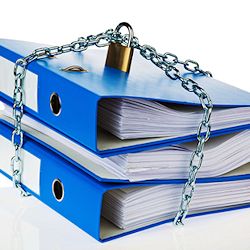


Violation of intellectual property rights, "infringement" with regard to patents, copyright, and trademarks, and "misappropriation" with respect to trade secrets, can be a breach of civil law or criminal law, which depends on the type of intellectual property involved, the jurisdiction, and the nature of the action.
Patent infringement is the using or selling of a patented invention without permission from the patent holder. Permission is typically granted in the form of a license. In many countries, a "use" is required to be commercial (or to have commercial purpose) to constitute patent infringement. Think of articles from the NFL, NBA and MLB.
The scope of the patented invention is defined by the claims of the granted patent, which is always on file with the USPTO.
Patents are territorial, and infringement is only possible in a country where a patent is in force. For example, a patent granted in the
United States prohibits anyone in the United States from making, using, selling, or importing the patented item, while people in other
countries may be free to exploit the patented invention in their country.

Financial exploitation takes many forms. While the vast majority of reports to APS involve perpetrators who are related to, or in a trusting relationship with, the victim, scams and frauds by strangers are also very common.
Types of Scams:

Executive protection (EP), also known as close protection, refers to security and risk mitigation measures taken to ensure the safety of VIP’s (Very Important Persons) or other individuals who may be exposed to elevated personal risk because of their employment, high-profile status, net worth, affiliations or geographical location.
Executive protection is its own highly specialized field within the private security industry. Elite executive protection professionals
will have specialized training in executive protection, driving, first aid, and marksmanship.

You hear about lie detectors all the time in police investigations, and sometimes a person applying for a job will have to undergo a polygraph test (for example, certain government jobs with the FBI or CIA require polygraph tests). The goal of a lie detector is to see if the person is telling the truth or lying when answering certain questions.
When a person takes a polygraph test, four to six sensors are attached to him. A polygraph is a machine in which the multiple ("poly") signals from the sensors are recorded on a single strip of moving paper ("graph"). The sensors usually record, the person's breathing rate, pulse, blood pressure, perspiration and sometimes leg and hand movement.
Both during and after the test, a polygraph examiner can look at the graphs and can see whether the vital signs changed significantly on any of the questions. In general, a significant change (such as a faster heart rate, higher blood pressure, increased perspiration) indicates that the person is lying.
When a well-trained examiner uses a polygraph, he or she can detect lying with high accuracy. However, because the examiner's interpretation is subjective and because different people react differently to lying, a polygraph test is not perfect and can be fooled.
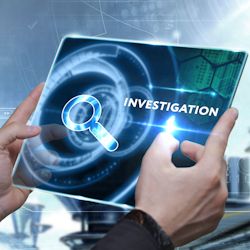
Computer forensics is the practice of collecting, analyzing and reporting on digital data in a way that is legally admissible. It can be used in the detection and prevention of crime and in any dispute where evidence is stored digitally. Computer forensics follows a similar process to other forensic disciplines and faces similar issues.
It is not just the content of emails, documents and other files which may be of interest to investigators but also the ‘metadata’
associated with those files. A computer forensic examination may reveal when a document first appeared on a computer, when it was last
edited, when it was last saved or printed and which user carried out these actions.
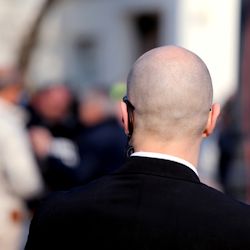
The TSCM Program provides expert technical and analytical capability to detect, deter, isolate, and nullify technical surveillance penetrations directed at classified and sensitive unclassified information and technical security hazards within client facilities.
These could include:
It also educates employees about the TSCM Program and associated technical and physical security risks and vulnerabilities.
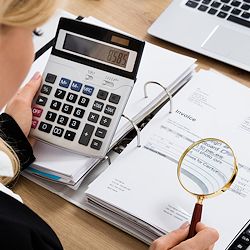
These specialized accountants examine tax and business records to identify irregularities that can impact major criminal and civil cases. They are often certified public accountants (CPAs) who use forensic accounting to detect and/or find evidence of embezzlement, corruption, and other financial crimes.
Whoever knowingly executes, or attempts to execute, a scheme or artifice to defraud a financial institution; or to obtain any of the moneys, funds, credits, assets, securities, or other property owned by, or under the custody or control of, a financial institution, by means of false or fraudulent pretenses, representations, or promises.
The term bank fraud also refers to attempts by a person to obtain money from a bank’s depositors by falsely pretending to be a bank or financial institution.
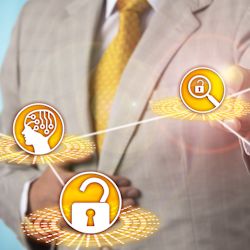
Money laundering is the generic term used to describe the process by which criminals disguise the original ownership and control of the proceeds of criminal conduct by making such proceeds appear to have derived from a legitimate source.
The processes by which criminally derived property may be laundered are extensive. Though criminal money may be successfully laundered without the assistance of the financial sector, the reality is that hundreds of billions of dollars of criminally derived money is laundered through financial institutions, annually. The nature of the services and products offered by the financial services industry (namely managing, controlling and possessing money and property belonging to others) means that it is vulnerable to abuse by money launderers.